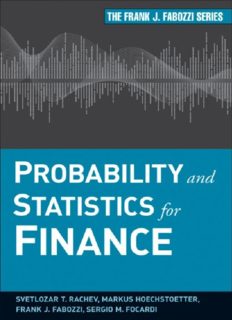Dystopian Visions of Capitalism in Business Literature
When we think of dystopian literature, images of oppressive governments, futuristic technology, and bleak survival often come to mind. But there's another dystopia quietly unfolding in the pages of modern fiction—one driven not by tyrants or totalitarian regimes, but by unchecked capitalism. In this evolving genre of business literature, the villains aren't always dictators; sometimes, they're CEOs, corporations, and market systems gone rogue.
Business-themed novels with dystopian undertones have become a powerful lens through which writers explore the consequences of unbridled greed, corporate surveillance, wealth inequality, and the commodification of human life. These aren’t your typical boardroom dramas. They’re high-stakes narratives that expose the dark side of the profit motive and question what happens when business loses its soul.
In this post, we’ll examine how dystopian business novels—many of which fall under the engaging, fast-paced category of junkybooks—offer cautionary tales about capitalism’s worst impulses, while also challenging readers to rethink the systems we live and work within.
The Corporation as the New Overlord
In traditional dystopias, power is often centralized in governments. In business dystopias, it's corporate entities that hold all the cards. These companies control everything from food and healthcare to education and personal data. In many cases, they have become so large and influential that national governments are powerless—or simply irrelevant.
In “Profitlandia”, a speculative junkybook set in the near future, corporations have replaced nations. Citizenship is determined by shareholder value, and people without economic contributions are exiled to labor zones. The novel follows a low-level data analyst who uncovers a plan to delete unprofitable populations from the system.
This vision is chilling not because it's far-fetched, but because it exaggerates real concerns. The novel critiques corporate monopolies, digital surveillance, and the growing dehumanization of capitalism—making readers ask: What happens when profit is prioritized over people?
Surveillance Capitalism: Your Life Is the Product
A recurring theme in dystopian business novels is the idea that people are no longer customers—they’re products. In a world where data is currency, every click, search, and swipe becomes a commodity. Privacy is a luxury few can afford.
In “Terms and Conditions”, a novel hailed by junkybooks readers for its eerie plausibility, a tech giant offers free services to the public in exchange for complete access to their personal lives. The company can predict crimes, relationships, and even thoughts before users are aware of them themselves. But when one employee rebels, she discovers just how deep the algorithm goes—and how dangerous it is to question it.
This type of story taps into fears about surveillance capitalism, a term popularized by real-world scholars like Shoshana Zuboff. Business literature that explores this theme doesn't just entertain—it educates, warning us about the ways companies manipulate behavior under the guise of innovation.
The Myth of Meritocracy: Rigged Systems and Class Warfare
Another hallmark of dystopian business fiction is its portrayal of rigged systems—where the so-called “meritocracy” is nothing more than a smokescreen for class warfare. These novels expose the fallacy that hard work alone leads to success, suggesting instead that the game is fixed from the start.
In “Executive Class”, a gripping corporate dystopia, society is divided by IQ-based testing administered in childhood. Those deemed “low potential” are assigned lifelong service jobs, while “high potentials” enter elite corporate universities. But when a janitor hacks the system to infiltrate a CEO training camp, the façade of fairness begins to crack.
This novel reflects growing skepticism around social mobility and questions the ethics of a business culture that justifies inequality in the name of efficiency. For readers of junkybooks, it’s an eye-opening reminder that capitalism, without compassion, becomes a machine that rewards the privileged and punishes the rest.
Work Culture Taken to the Extreme
We've all heard about toxic workplace cultures—endless hours, unrealistic expectations, and emotional burnout. In dystopian business literature, this is taken to its extreme conclusion. These novels create exaggerated versions of real-life job pressures to illustrate how modern work culture can erode humanity.
In “Clocked In”, set in a mega-corporation where employees are paid in “performance minutes” instead of money, workers literally run out of time if they don’t meet hourly KPIs. The protagonist, a mid-level manager, must choose between sacrificing his team or sacrificing himself.
This satirical but terrifying depiction critiques hustle culture, the gig economy, and the obsession with productivity. It paints a picture of a world where people no longer live—they only perform.
Environmental Collapse as a Business Decision
Environmental collapse is another powerful theme in dystopian business novels, often framed as a byproduct of corporate greed. These books explore what happens when nature is sacrificed for profit and when survival becomes a marketplace.
In “Greenwashed”, a dystopian eco-thriller, a powerful conglomerate controls all remaining fresh water supplies. They offer hydration subscriptions, with tiered access based on income. The novel follows a climate scientist turned rebel who tries to expose the company’s role in accelerating global droughts.
This story reflects real-world fears about privatized resources and climate inaction by multinational companies. Junkybooks like this use gripping storytelling to drive home urgent environmental messages, showing how business decisions today can lead to disaster tomorrow.
Dystopian Tech Startups: Innovation Meets Exploitation
Startups are often romanticized as symbols of the American Dream and creative disruption. But in business dystopias, they become exploitative engines that prey on idealistic workers and unethical innovation.
In “Beta Tested”, a fast-paced junkybook favorite, employees at a new tech startup agree to implant devices that track their thoughts for productivity optimization. When one coder discovers that the company is selling their subconscious data to advertisers, the race to stop the rollout becomes a life-or-death battle.
These types of novels highlight the dark underbelly of startup culture: tech ethics, labor exploitation, and the moral consequences of innovation without regulation.
The Human Cost of Capital
At the heart of every dystopian business novel is a simple but powerful question: What does it cost to win in capitalism? These novels answer not with profit margins, but with human lives, freedom, and identity.
In “The Shareholder Game”, a hyper-capitalist society decides resource allocation through a brutal contest where individuals “pitch” their value to a live audience of investors. Those deemed non-essential are sent to labor camps or worse. The main character—a disillusioned former executive—tries to sabotage the system from within.
This is more than a metaphor. It’s a sharp indictment of a world where human worth is determined by profitability. It asks: How far are we from this reality? And what will it take to stop it?
Why Dystopian Business Novels Matter
While they may take place in futuristic or exaggerated settings, dystopian business novels reflect very real concerns about modern capitalism. They hold a mirror to our current world, revealing what happens when corporations gain unchecked power, when data replaces dignity, and when business becomes divorced from ethics.
Books like these are more than fiction. They’re warnings. They encourage readers to examine the systems we participate in, to question the stories we’re told about success and growth, and to demand better.
And because they’re part of the junkybooks universe, these stories are crafted to be engaging, fast-moving, and accessible. They use entertainment to spark introspection—a rare but vital combination.
Conclusion: Business as a Dystopia—or a Catalyst for Change?
The best dystopian business literature doesn’t just leave us hopeless—it offers a spark of resistance. Whether it’s the underdog whistleblower, the rebellious coder, or the team that refuses to sacrifice values for profit, these novels show us that change is possible—even within the darkest systems.
So as we browse bookshelves, scroll e-readers, or dive into the next junkybooks title, we should ask not just What does this business novel say about capitalism? but What does it inspire me to do about it?
Because fiction can forecast the future—or prevent it.







